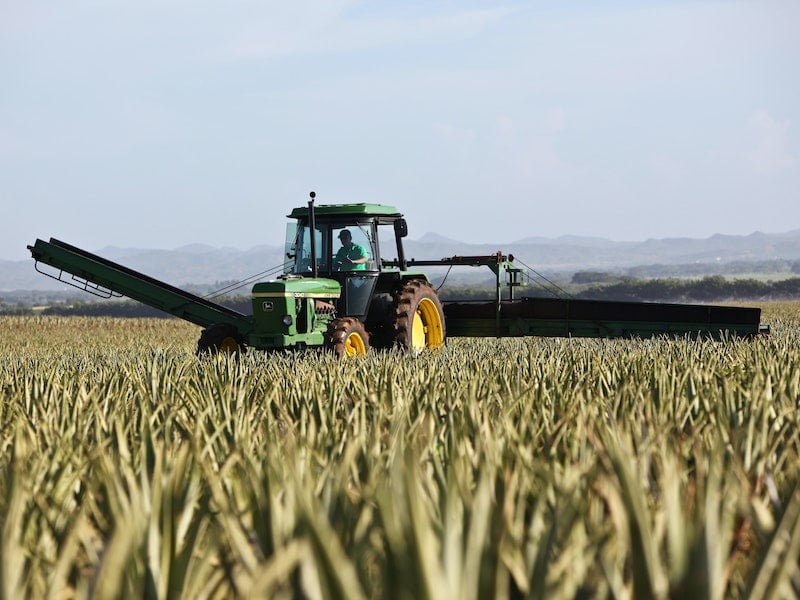
28 Feb Attorneys expect thousands of dicamba lawsuits
Dicamba Lawsuits | Southeast Missourian | Jay Wolz | February 27, 2020
Dicamba lawsuits: $15 million in actual damages and $250 million in punitive damages
A quarter-billion dollar verdict in the landmark dicamba herbicide trial in Cape Girardeau earlier this month wasn’t the end of the story. In fact, it was barely the first chapter, according to attorneys who are handling additional dicamba cases.
“Before the verdict, we had somewhere in the neighborhood of 75 farmers,” said St. Louis-based attorney Joseph Peiffer, referring to the number of farmers his firm was representing in dicamba litigation. “Since then, our phones have been ringing off the hook.”
The verdict he referenced was the $265 million judgment against Monsanto Co. and BASF Corp. — $15 million in actual damages and $250 million in punitive damages — awarded two weeks ago by a federal jury to owners of a Southeast Missouri peach farm.
After three weeks of testimony, the seven-member jury sided with Bill and Denise Bader, owners of Bader Farms near Campbell, Missouri, who claimed dicamba products made by Monsanto and BASF had “drifted” onto their orchards, damaging or destroying thousands of peach trees in 2015 and 2016.
Speaking on Wednesday in a conference call with the Southeast Missourian and several other media outlets from across the country, Peiffer and fellow attorney Paul Lesko said there could ultimately be thousands of cases brought by farmers from coast to coast claiming significant crop loss due to dicamba damage.
“The Bader verdict sent a clear signal that you can’t profit off of hurting innocent farmers and get away with it,” said Peiffer, managing partner in the multistate law firm of Peiffer Wolf Carr & Kane, who estimated more than 2,000 farmers will sue Monsanto and its parent company, Bayer, and BASF over dicamba damage to their crops.
“We actually believe 2,000 farmers is a conservative estimate of how many folks will come forward,” he said. “Monsanto/Bayer and BASF understandably want to calm down shareholders and markets by pretending there aren’t more than 2,000 farmers out there with dicamba damage, (but) the crop-damage research and increasing farmer complaints forecast a much bigger problem than Monsanto/Bayer and BASF want to admit.”
Lesko, who is also affiliated with Peiffer Wolf Carr & Kane, told the Southeast Missourian a significant number of cases have their roots in Missouri’s Bootheel.
“The Bootheel and northern Arkansas have been ‘ground zero’ for dicamba exposure,” he said. “That’s because the hot, humid summer conditions there are perfect for dicamba volatility.”
That volatility, he explained, increases the likelihood of dicamba “drift” off of targeted fields of dicamba-tolerant crops onto nearly unprotected fields such as the orchards of Bader Farms.
Dicamba lawsuits: dicamba has been found to be harmful to crops that are not dicamba-tolerant
Approximately 80% of Peiffer Wolf Carr & Kane’s initial dicamba cases came out of Southeast Missouri and Northeast Arkansas, Peiffer estimated.
“Let’s put it this way,” Lesko said, “there’s no shortage of cases coming out of there.”
Lesko studied biology and biochemistry before earning a law degree and said dicamba has been found to be harmful to crops that are not dicamba-tolerant.
“We know by the science that dicamba is extremely damaging to those crops,” he said. “The science also tells us that dicamba will kill everything except grass crops. It’s powerful and causes real damage and that’s why thousand of farmers have real and viable claims today.”
Peiffer said the Bader case has provided “the road map” for future dicamba cases, many of which will be heard in Missouri. Several cases originally filed in state courts have been consolidated in U.S. District Court before Judge Stephen N. Limbaugh Jr., who presided over the Bader lawsuit, Peiffer said.
“We have talked with dozens of lawyers across the country and we’re teaming up with them on a number of cases,” Peiffer said. “As for what comes next, we’ll have another trial and we’re hopeful that trial will happen sometime in the fall. By that time, there’s going to be lots and lots and lots of cases filed.”
In addition to lawsuits brought by farmers against Monsanto and BASF, Lesko said he wouldn’t be surprised if litigation is filed at some point on behalf of consumers over residual dicamba in food products.
“I think that’s a very viable concern and it wouldn’t shock me if that’s another round of lawsuits,” he said.
FREE Consultation | 314-833-4827
Dicamba Damage Lawyers at Peiffer Wolf Carr & Kane are fighting on behalf of farmers and landowners to seek maximum compensation for the damages suffered due to Dicamba Damage. If you suspect that your crops or plants have been damaged by dicamba, contact Peiffer Wolf Carr & Kane by filling out a Contact Form or by calling 314-833-4827 for a FREE Consultation.



